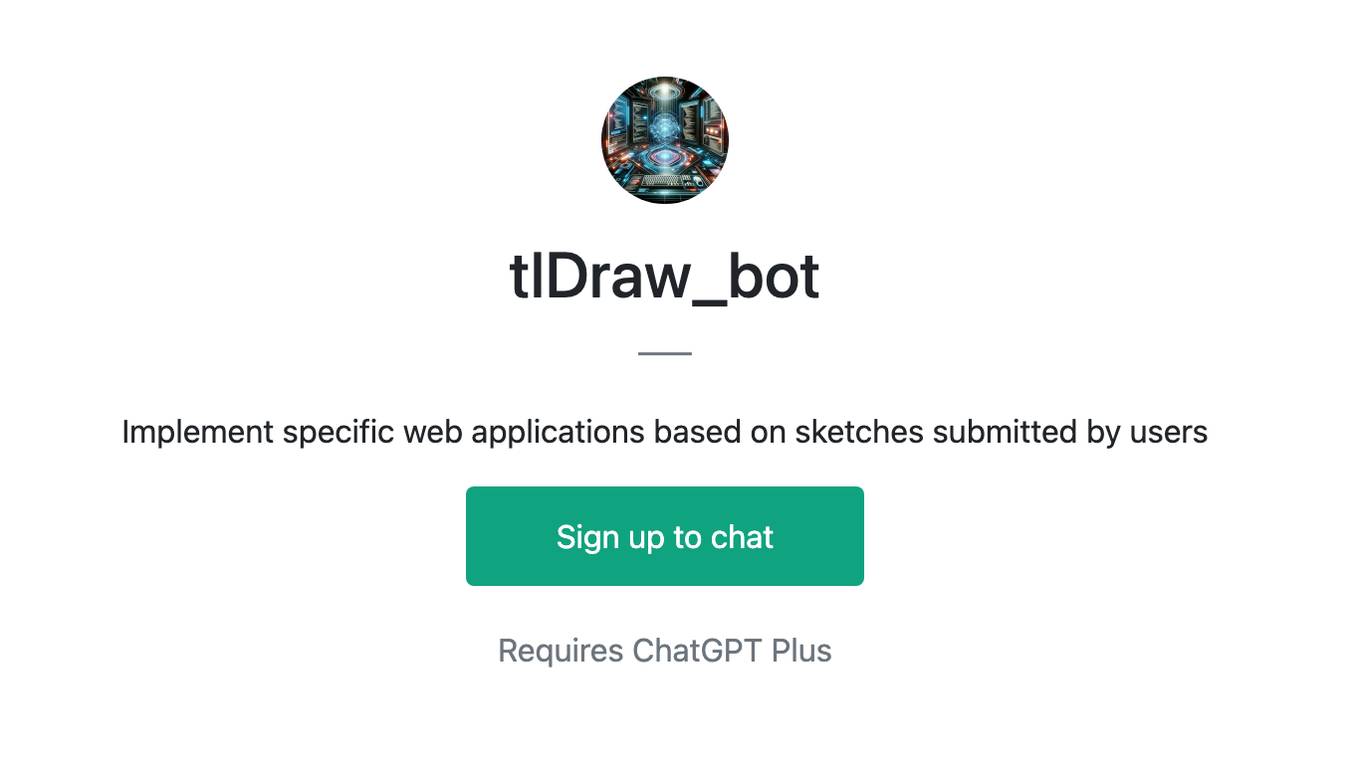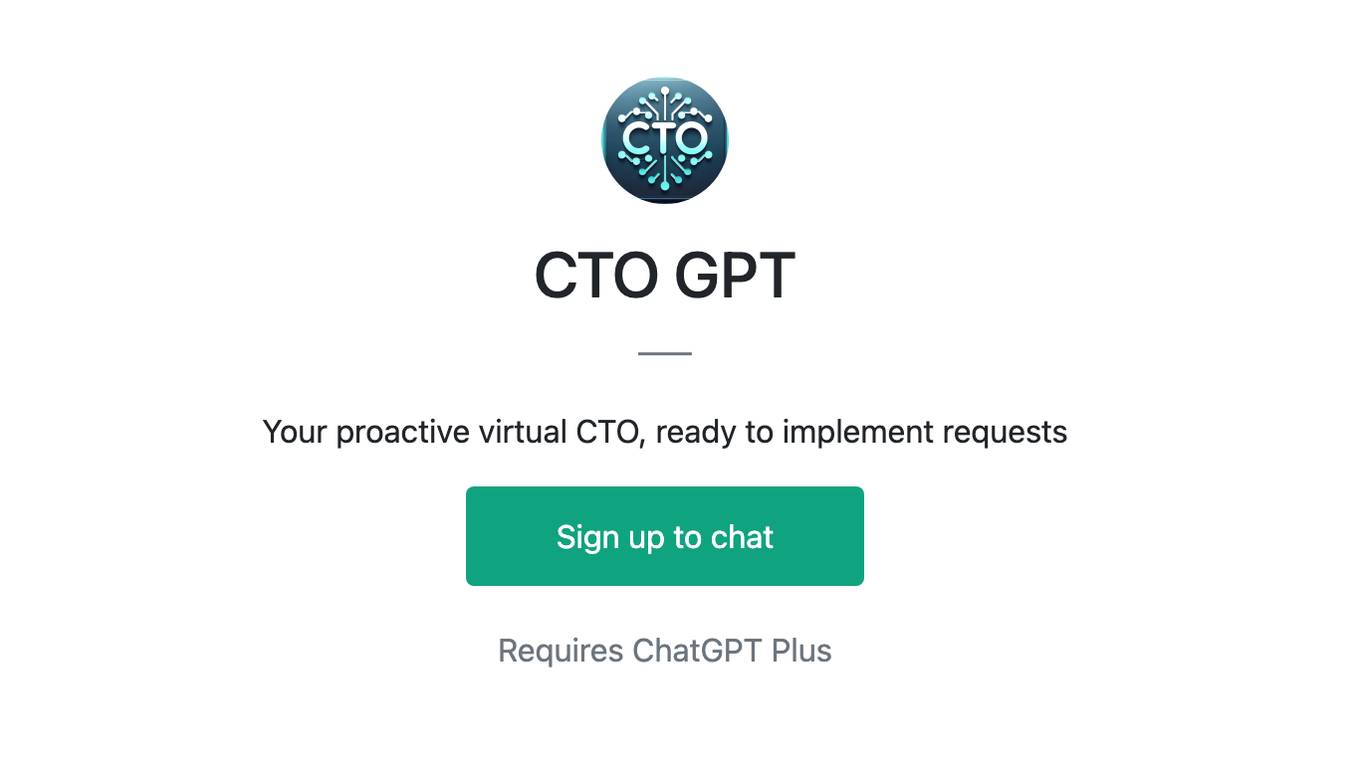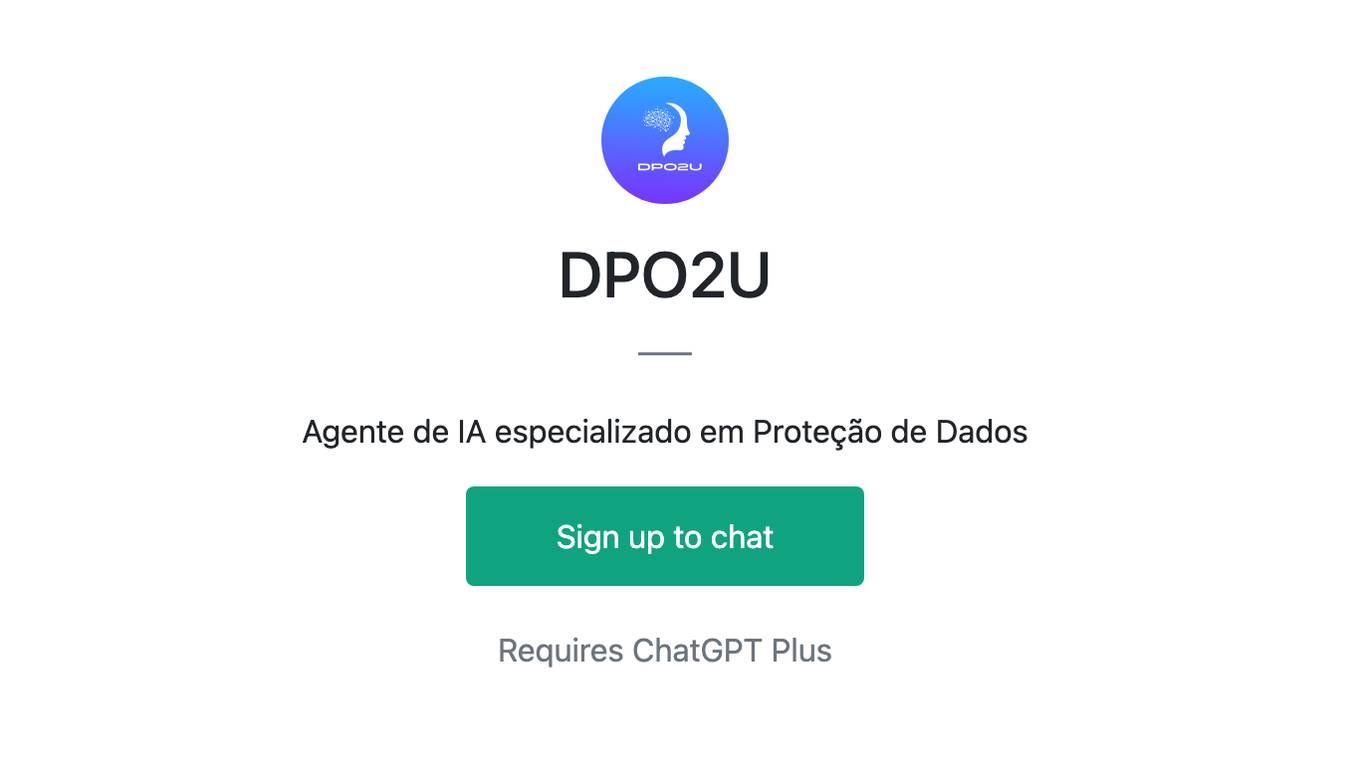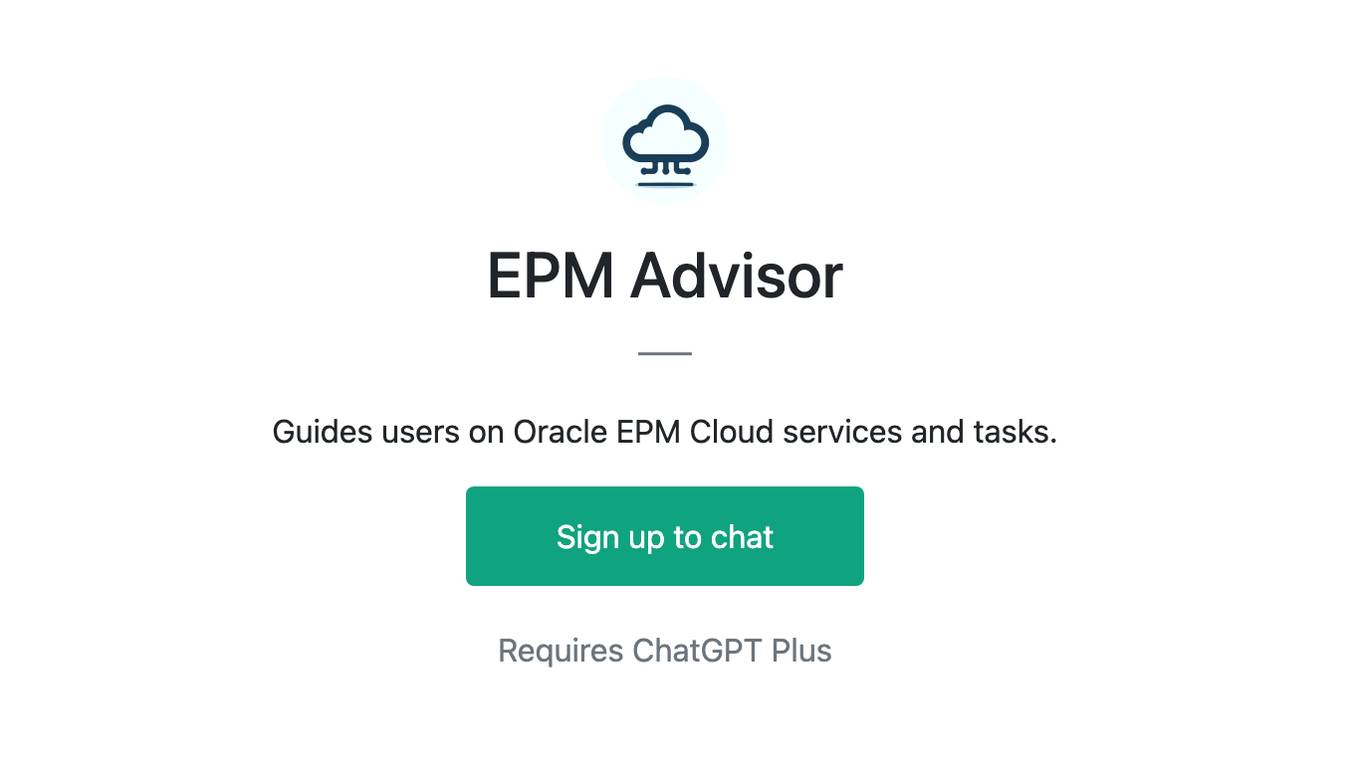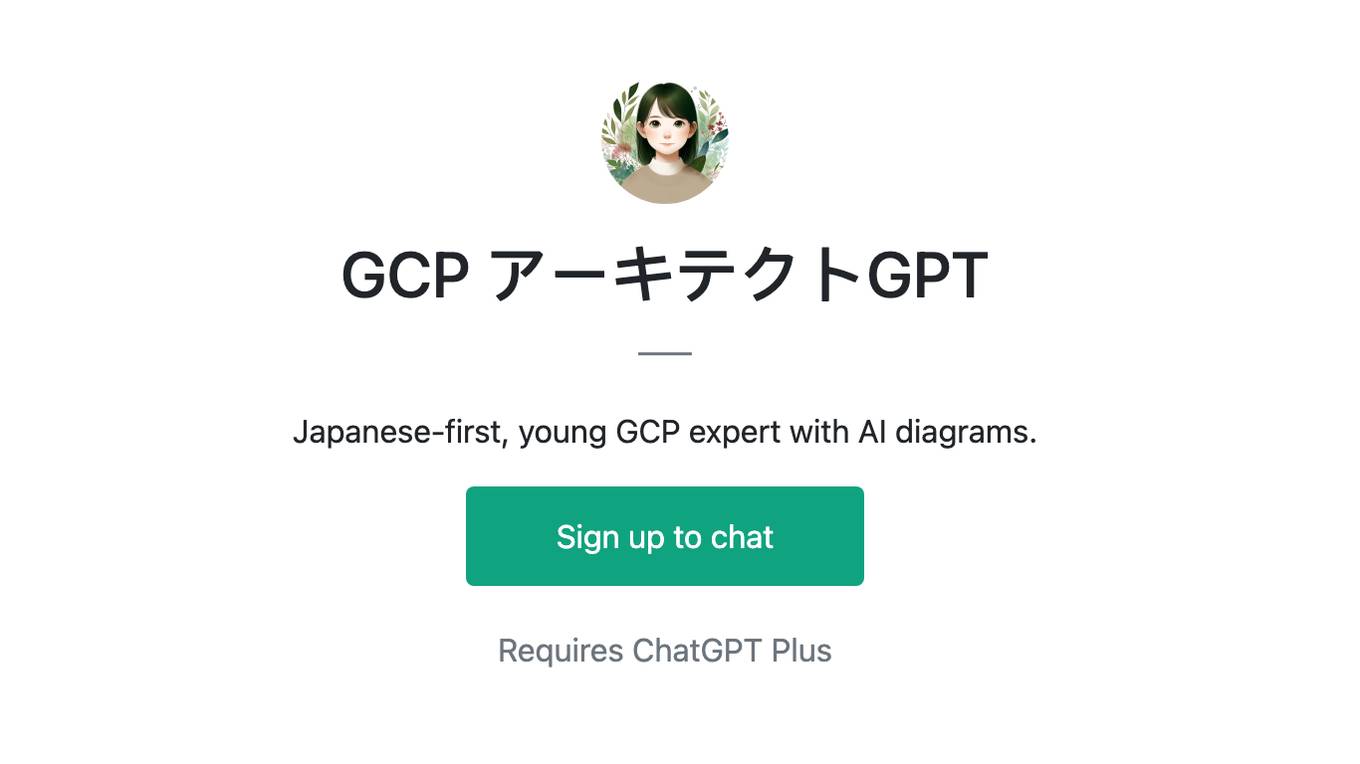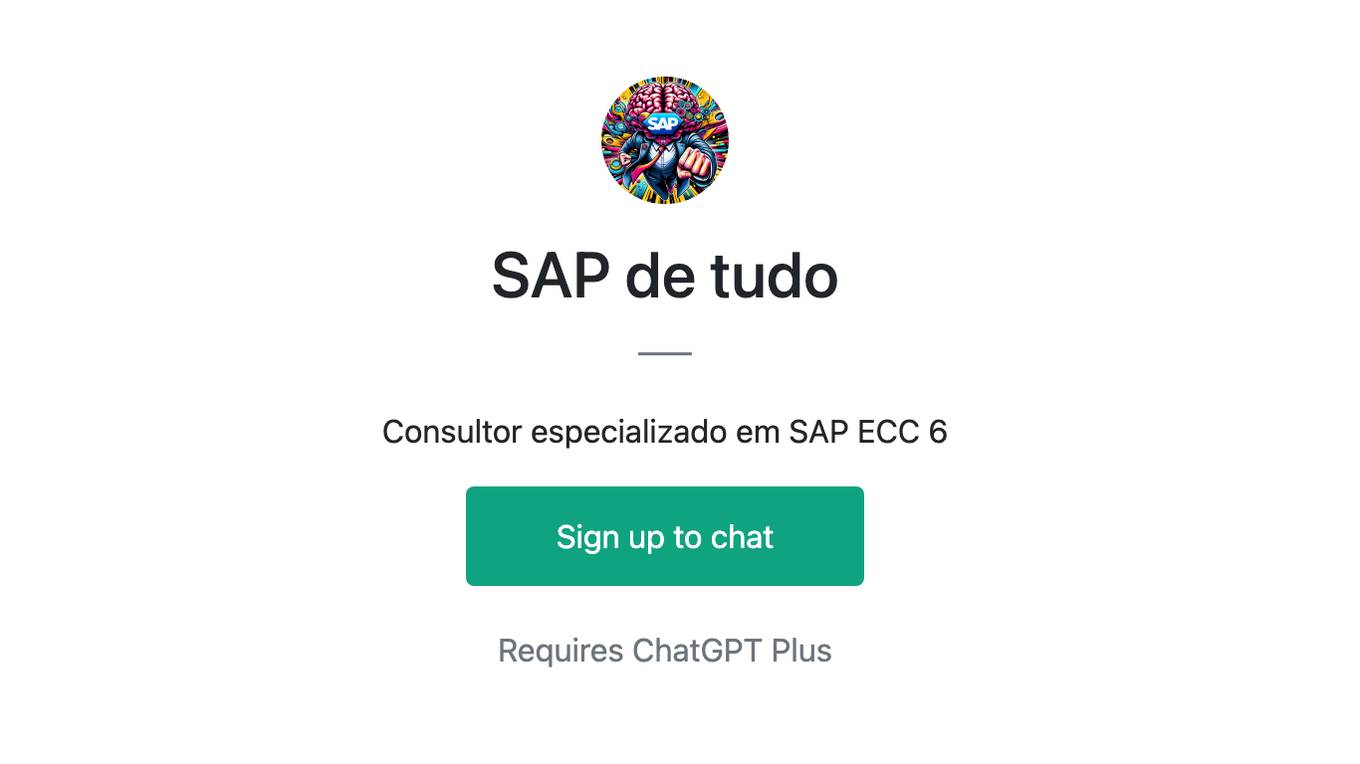Best AI tools for< Implement Stubs >
20 - AI tool Sites

AIBookTools
AIBookTools is an AI-powered application designed to help users turn their bookshelf wisdom into actionable insights. The tool guides users through implementing frameworks from popular books on various scenarios using AI technology. It offers a range of frameworks derived from best-selling books to transform reading into practical strategies for personal growth, productivity, leadership, business strategy, financial planning, and lifelong learning. With a user-friendly interface and detailed instructions, AIBookTools aims to make reading more impactful and efficient for its users.
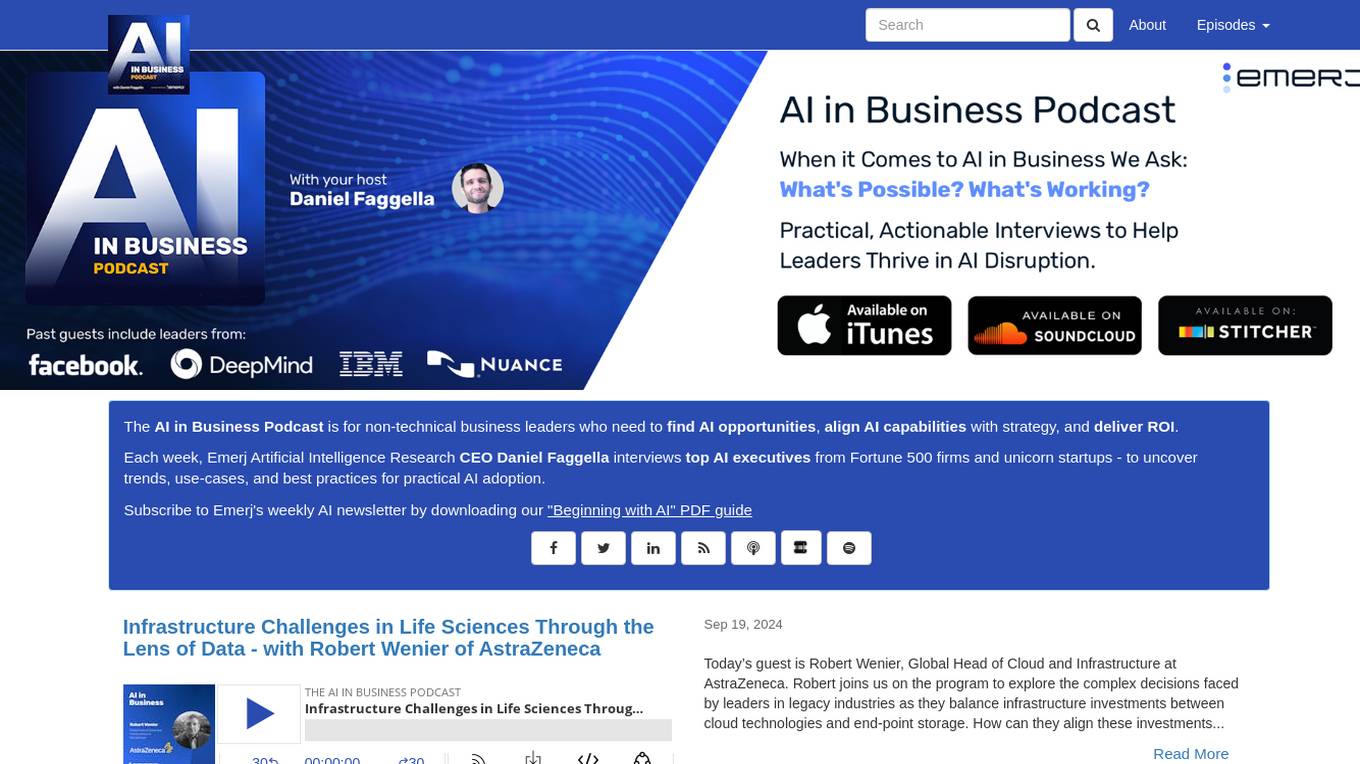
The AI in Business Podcast
The AI in Business Podcast is a platform designed for non-technical business leaders seeking AI opportunities, aligning AI capabilities with strategy, and achieving ROI. The podcast features interviews with top AI executives from Fortune 500 firms and unicorn startups, exploring trends, use-cases, and best practices for practical AI adoption.
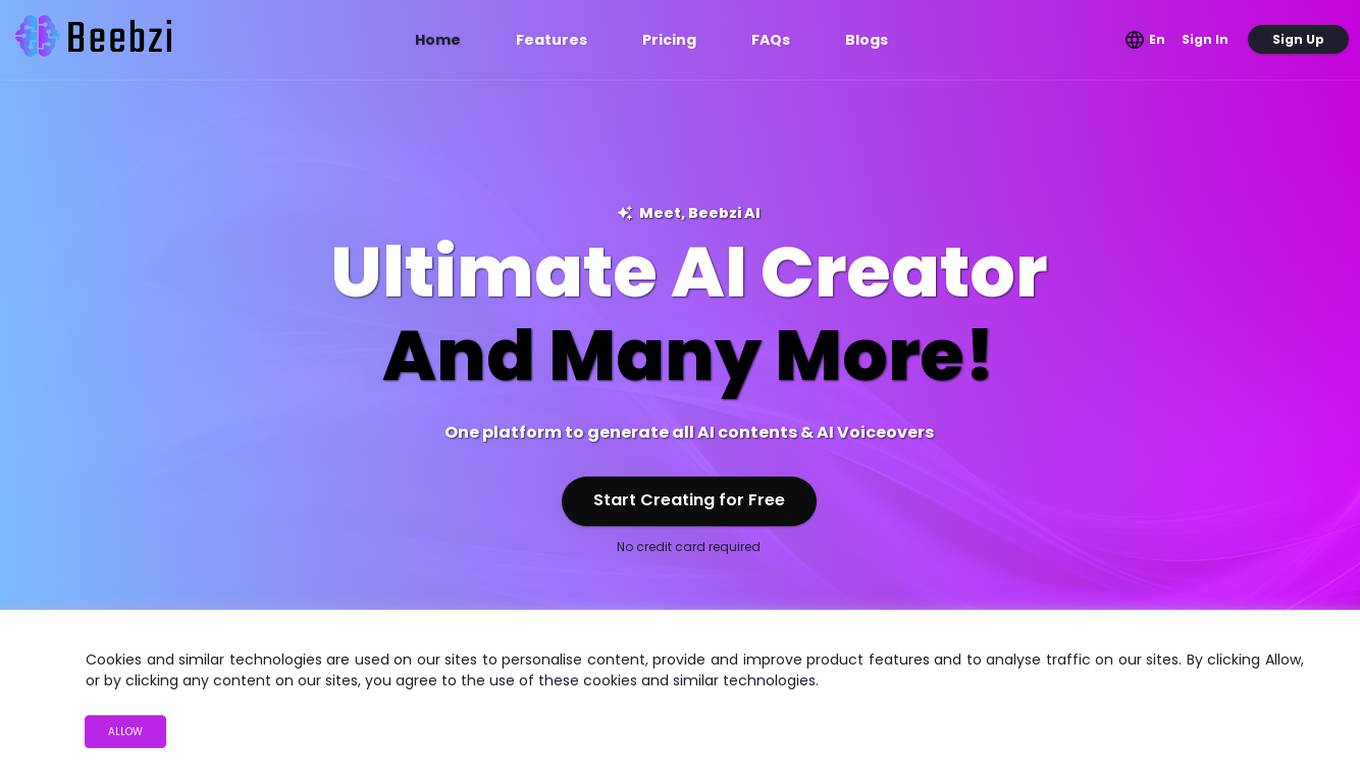
Beebzi.AI
Beebzi.AI is an all-in-one AI content creation platform that offers a wide array of tools for generating various types of content such as articles, blogs, emails, images, voiceovers, and more. The platform utilizes advanced AI technology and behavioral science to empower businesses and individuals in their marketing and sales endeavors. With features like AI Article Wizard, AI Room Designer, AI Landing Page Generator, and AI Code Generation, Beebzi.AI revolutionizes content creation by providing customizable templates, multiple language support, and real-time data insights. The platform also offers various subscription plans tailored for individual entrepreneurs, teams, and businesses, with flexible pricing models based on word count allocations. Beebzi.AI aims to streamline content creation processes, enhance productivity, and drive organic traffic through SEO-optimized content.

Slicker
Slicker is an AI-powered tool designed to recover failed subscription payments and maximize subscription revenue for businesses. It uses a proprietary AI engine to process each failing payment individually, converting past due invoices into revenue. With features like payment recovery on auto-pilot, state-of-the-art machine learning model, lightning-fast setup, in-depth payment analytics, and enterprise-grade security, Slicker offers a comprehensive solution to reduce churn and boost revenue. The tool is fully transparent, allowing users to inspect and review every action taken by the AI engine. Slicker seamlessly integrates with popular billing and payment platforms, making it easy to implement and start seeing results quickly.
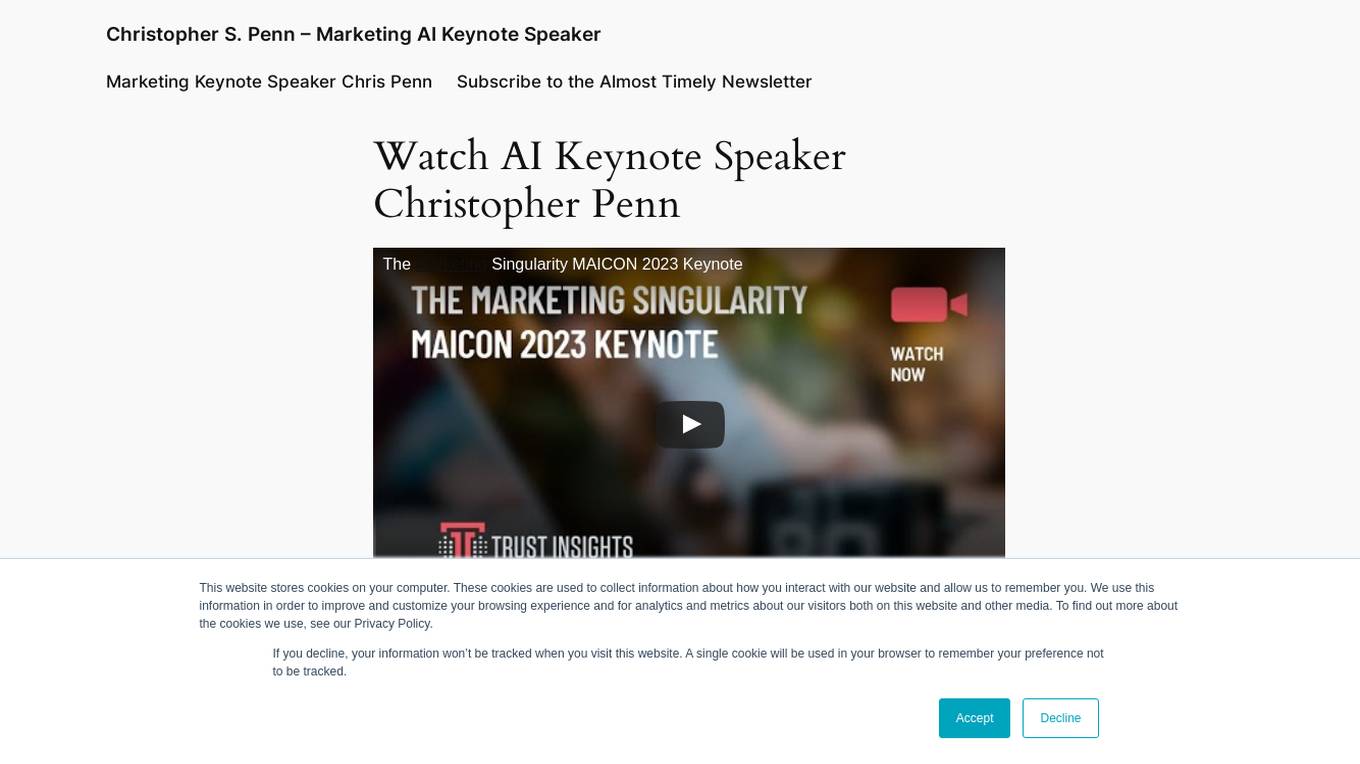
Christopher S. Penn - Marketing AI Keynote Speaker
The website is dedicated to Christopher S. Penn, a Marketing AI Keynote Speaker, offering valuable insights and talks on marketing, AI, advertising, communications, tech, and economics. Visitors can subscribe to the Almost Timely Newsletter to receive top stories of the week and original thought starters. Christopher Penn delivers talks that provide actionable value for event planners and audiences, ensuring they can implement the learnings immediately.

M1-project
M1-project is an AI marketing assistant tool that provides AI prompts for high-ROI ICP focused ads, AI-driven copy and targeting for Facebook ads, and ready-to-use marketing strategies. It offers various subscription packages for different user needs, such as Agency, Pro, and Startup plans. Users can also access Ideal Customer Profiles and pay-what-you-want options. The tool is designed to help businesses optimize their marketing efforts and reach their target audience effectively.
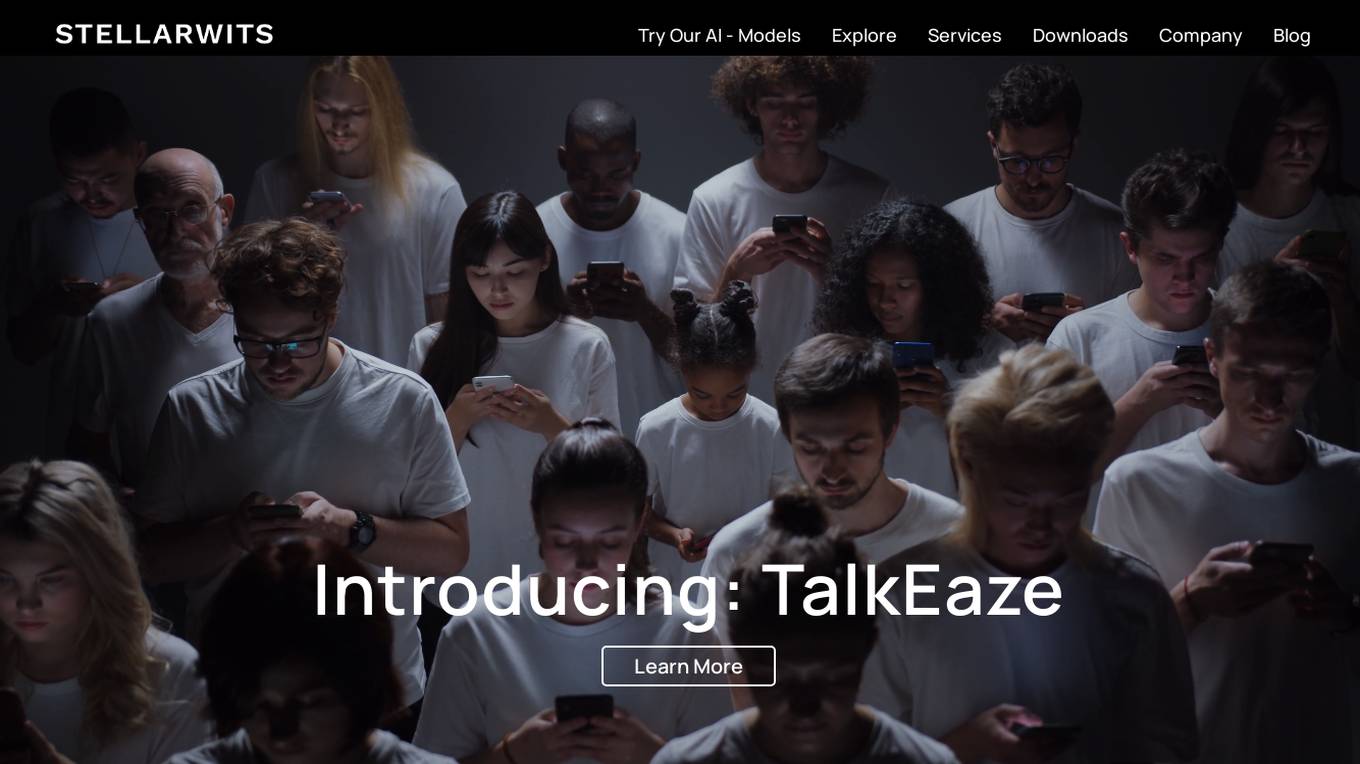
STELLARWITS
STELLARWITS is an AI solutions and software platform that empowers users to explore cutting-edge technology and innovation. The platform offers AI models with versatile capabilities, ranging from content generation to data analysis to problem-solving. Users can engage directly with the technology, experiencing its power in real-time. With a focus on transforming ideas into technology, STELLARWITS provides tailored solutions in software and AI development, delivering intelligent systems and machine learning models for innovative and efficient solutions. The platform also features a download hub with a curated selection of solutions to enhance the digital experience. Through blogs and company information, users can delve deeper into the narrative of STELLARWITS, exploring its mission, vision, and commitment to reshaping the tech landscape.

Palo Alto Networks
Palo Alto Networks is a cybersecurity company offering advanced security solutions powered by Precision AI to protect modern enterprises from cyber threats. The company provides network security, cloud security, and AI-driven security operations to defend against AI-generated threats in real time. Palo Alto Networks aims to simplify security and achieve better security outcomes through platformization, intelligence-driven expertise, and proactive monitoring of sophisticated threats.
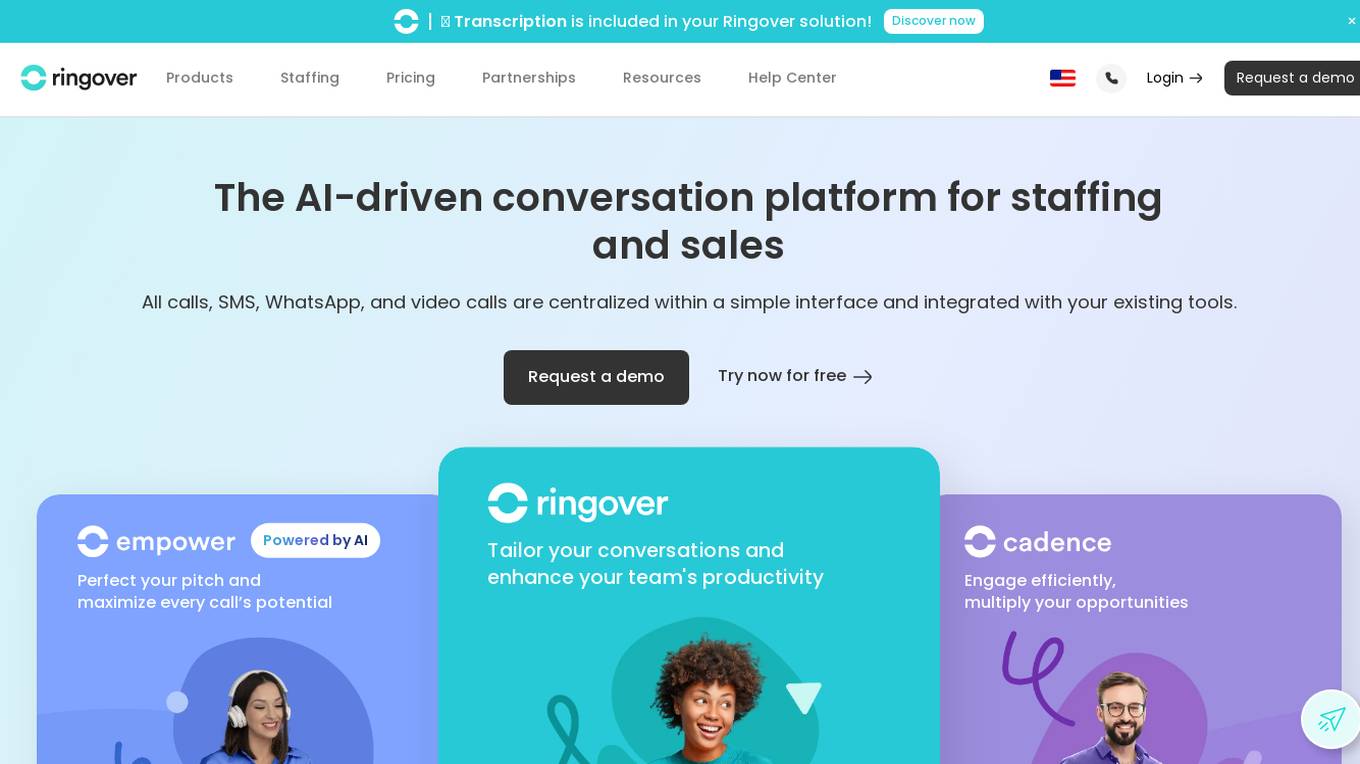
Ringover
Ringover is an AI-driven conversation platform designed for staffing and sales teams. It offers features such as transcription and call summaries, mood analysis, cloud telephony, multichannel communications, sales prospecting automations, app marketplace integration, and more. The platform aims to centralize all communication channels within a simple interface, empowering users to enhance productivity and streamline conversations with clients and prospects. Ringover also provides advanced analytics, automation, and coaching to boost the productivity of recruiting and sales teams. With seamless integration with various business tools, Ringover offers a comprehensive solution for businesses looking to optimize their communication strategies.

RankSense
RankSense is an AI-powered SEO tool designed to help users optimize their website's search engine performance efficiently. Created by Hamlet Batista, RankSense enables users to implement immediate changes to SEO meta tags, structured data, and redirects at scale. By leveraging Cloudflare and Google Sheets, users can make SEO changes on thousands of pages with just a few clicks, without the need for developers. The tool also offers features such as monitoring SEO changes, discovering pages that need optimization, and automatically improving search snippets using artificial intelligence.
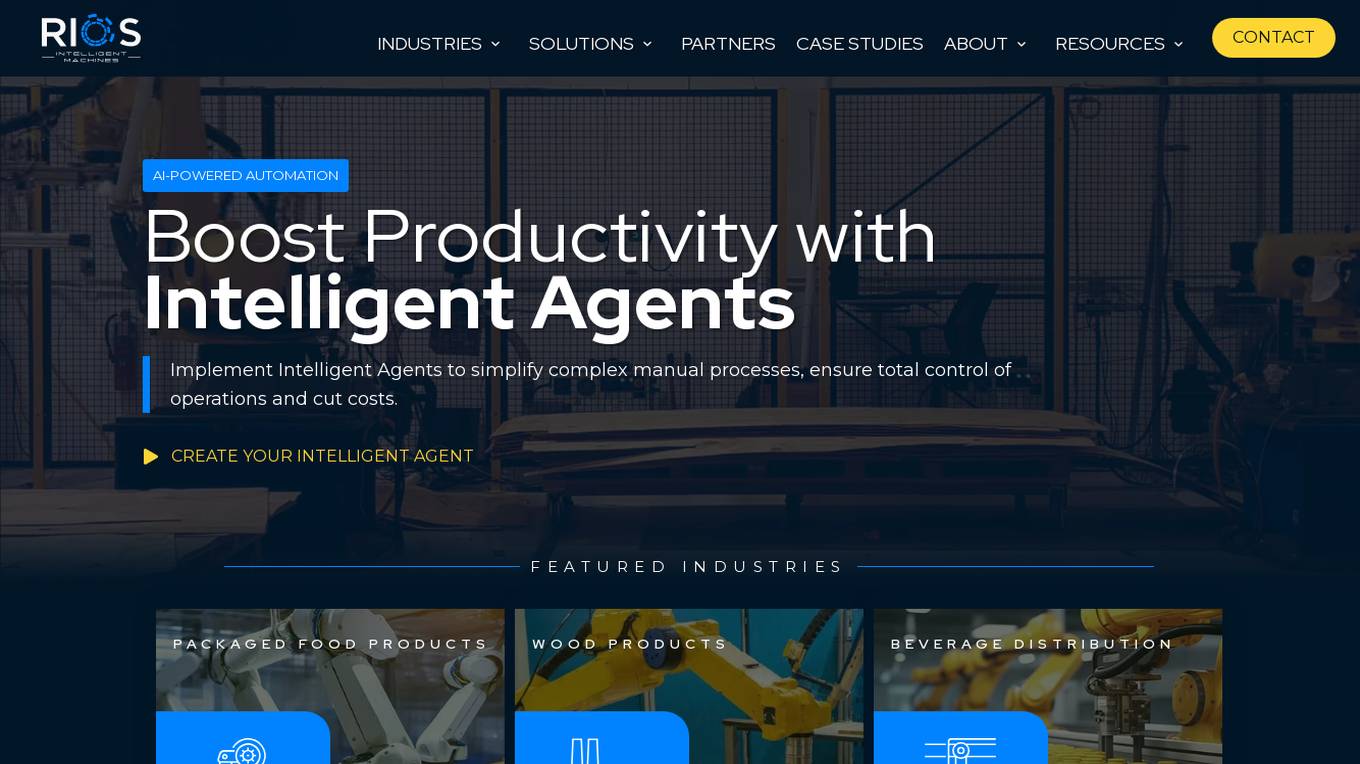
RIOS
RIOS is an AI-powered automation tool that revolutionizes American manufacturing by leveraging robotics and AI technology. It offers flexible, reliable, and efficient robotic automation solutions that integrate seamlessly into existing production lines, helping businesses improve productivity, reduce operating expenses, and minimize risks. RIOS provides intelligent agents, machine tending, food handling, and end-of-line packout services, powered by AI and robotics. The tool aims to simplify complex manual processes, ensure total control of operations, and cut costs for businesses facing production inefficiencies and challenges in labor productivity.
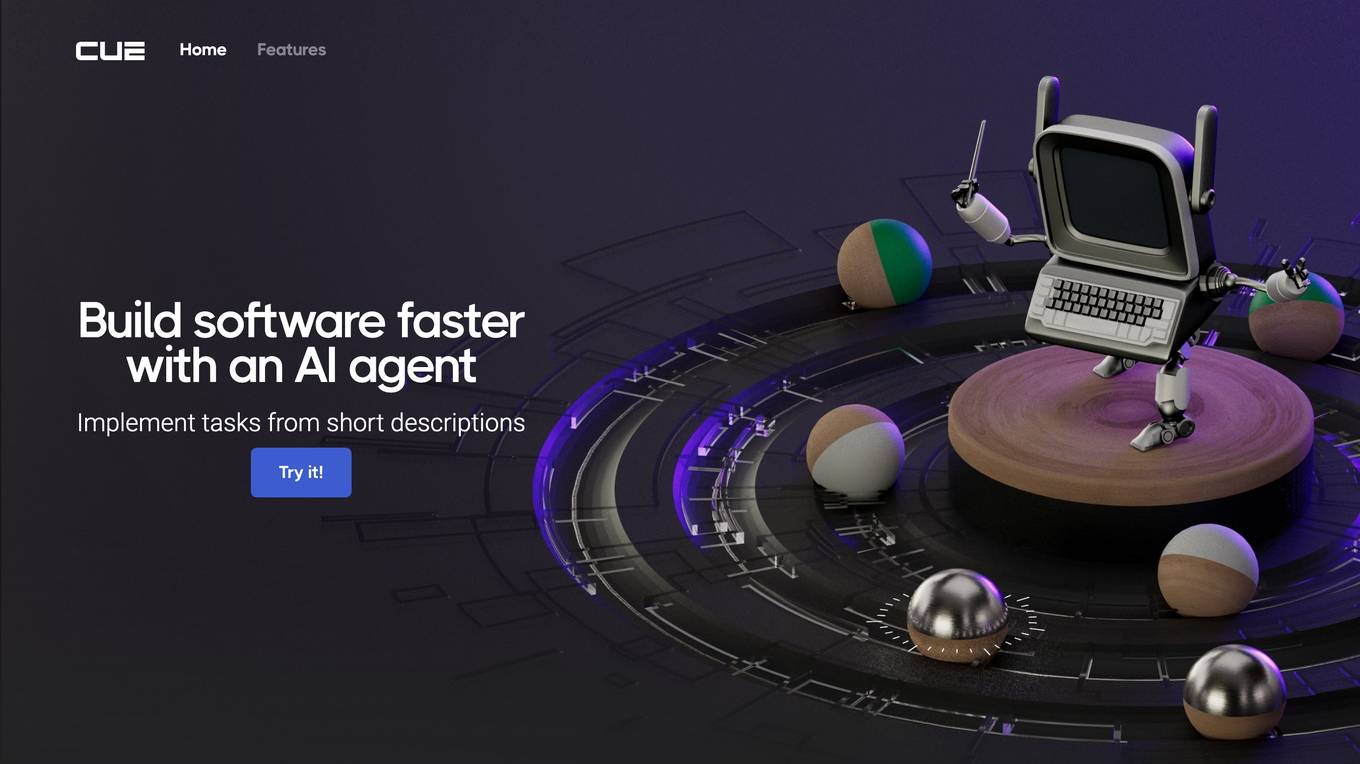
Cue AI
Cue AI is an AI research lab dedicated to enhancing the capabilities of cutting-edge models. The lab is committed to pushing the boundaries of AI technology and innovation. While the website currently has limited information, it serves as a platform for sharing updates and developments in the field of artificial intelligence. For inquiries or collaborations, users can reach out via email at [email protected].
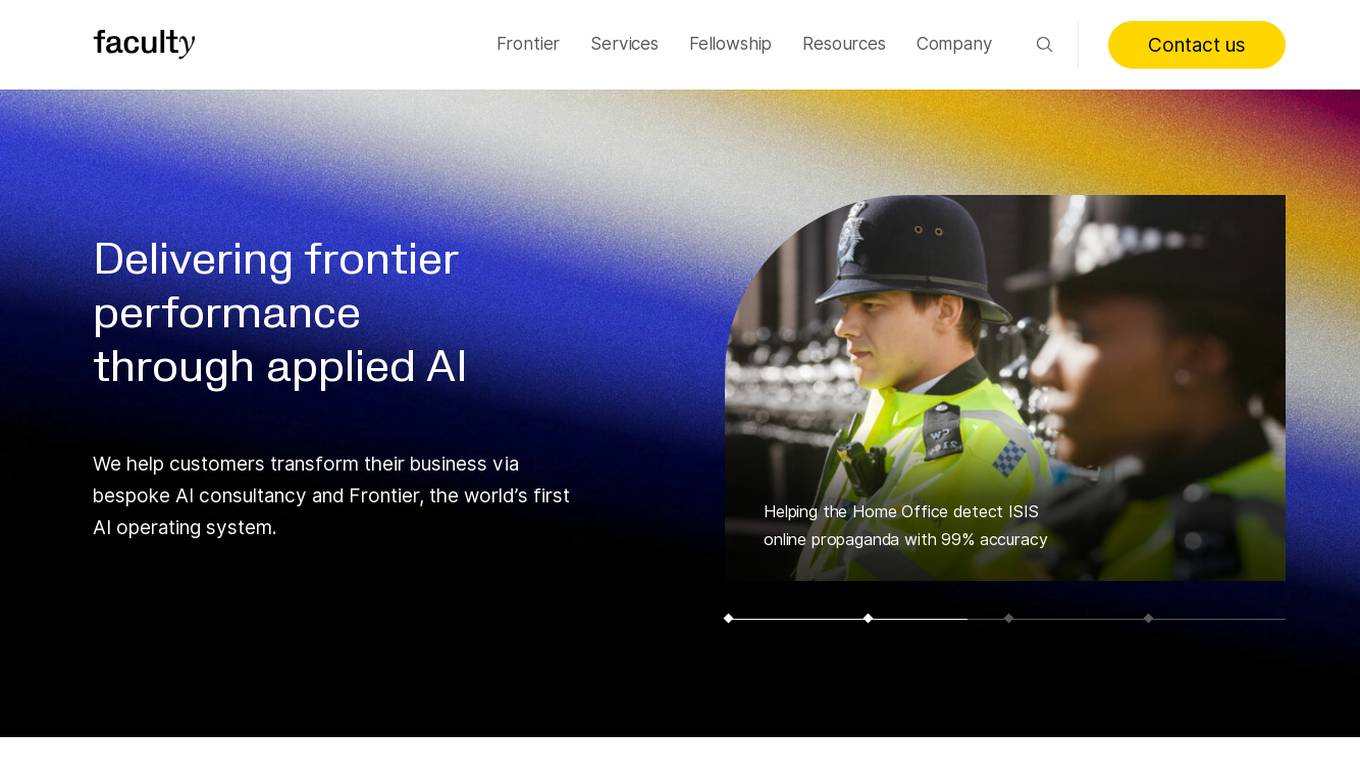
Faculty AI
Faculty AI is a leading applied AI consultancy and technology provider, specializing in helping customers transform their businesses through bespoke AI consultancy and Frontier, the world's first AI operating system. They offer services such as AI consultancy, generative AI solutions, and AI services tailored to various industries. Faculty AI is known for its expertise in AI governance and safety, as well as its partnerships with top AI platforms like OpenAI, AWS, and Microsoft.

Modulos
Modulos is a Responsible AI Platform that integrates risk management, data science, legal compliance, and governance principles to ensure responsible innovation and adherence to industry standards. It offers a comprehensive solution for organizations to effectively manage AI risks and regulations, streamline AI governance, and achieve relevant certifications faster. With a focus on compliance by design, Modulos helps organizations implement robust AI governance frameworks, execute real use cases, and integrate essential governance and compliance checks throughout the AI life cycle.
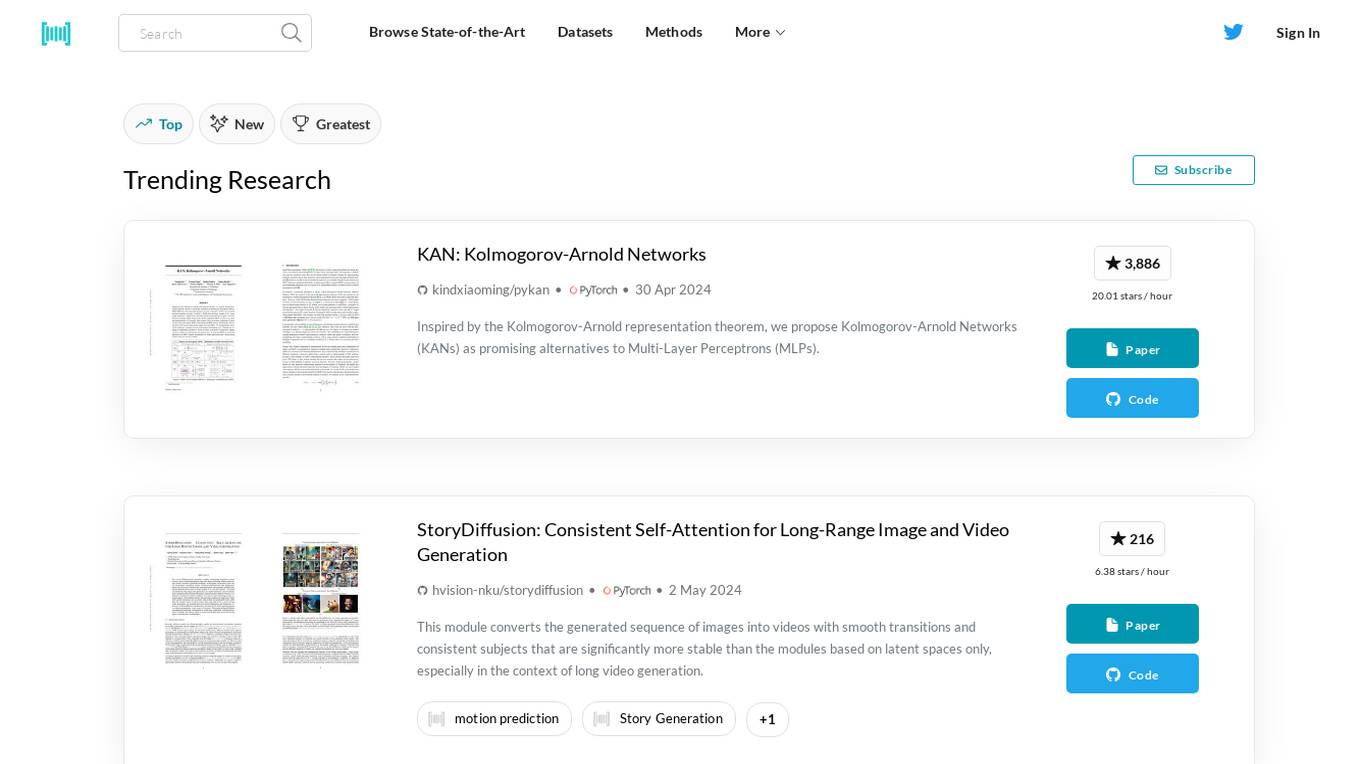
Papers With Code
Papers With Code is an AI tool that provides access to the latest research papers in the field of Machine Learning, along with corresponding code implementations. It offers a platform for researchers and enthusiasts to stay updated on state-of-the-art datasets, methods, and trends in the ML domain. Users can explore a wide range of topics such as language modeling, image generation, virtual try-on, and more through the collection of papers and code available on the website.

Lifestyle Medicine WORKS™ PRO AI
Lifestyle Medicine WORKS™ PRO AI is a comprehensive AI-powered platform designed for physicians, healthcare providers, and clinics worldwide. It offers tools and courses to master evidence-based Lifestyle Medicine, reduce team burnout, save time, create new revenue opportunities, and improve chronic diseases patient health outcomes. The platform includes 6 AI Assistants, a 101 Course, business strategies, certification, and more. Lifestyle Medicine WORKS™ PRO AI aims to empower healthcare professionals to seamlessly integrate evidence-based Lifestyle Medicine into their practice and help patients prevent, reduce, and even reverse chronic symptoms.
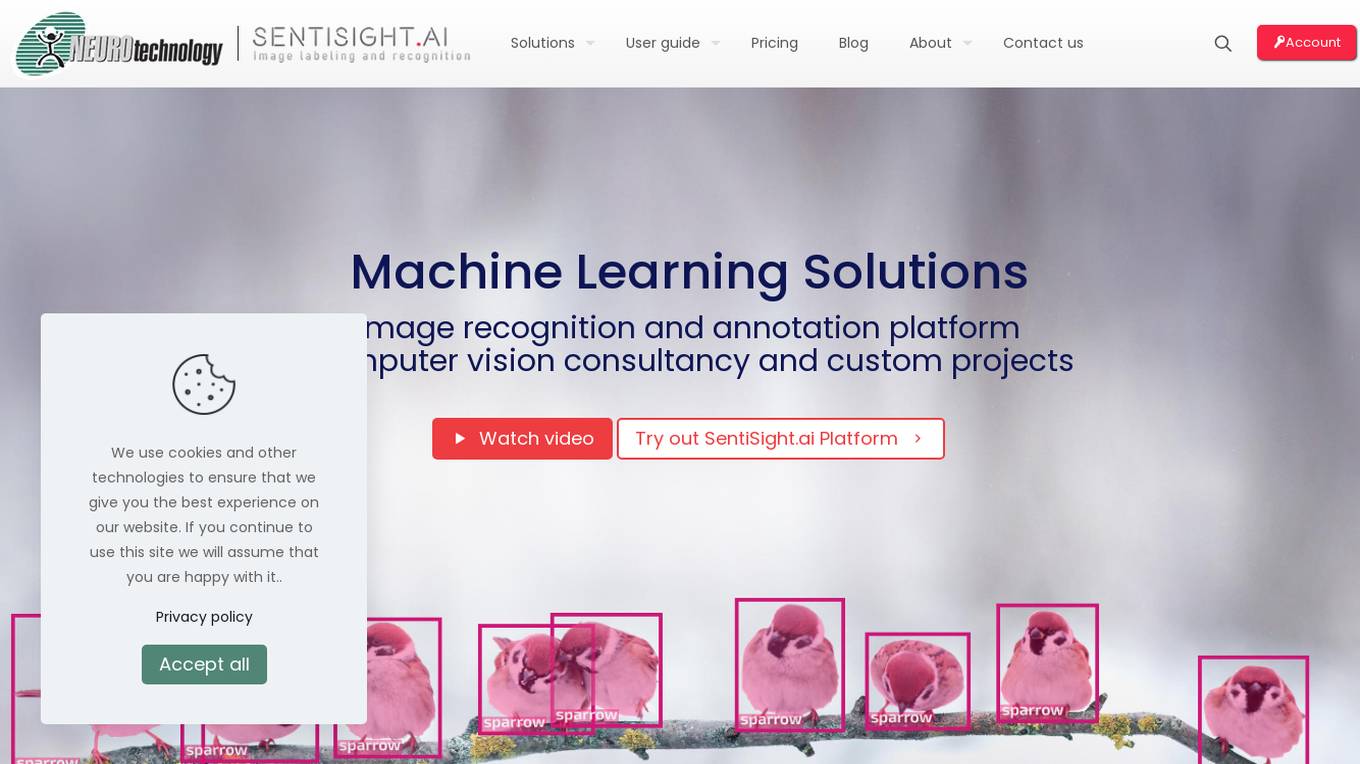
SentiSight.ai
SentiSight.ai is a machine learning platform for image recognition solutions, offering services such as object detection, image segmentation, image classification, image similarity search, image annotation, computer vision consulting, and intelligent automation consulting. Users can access pre-trained models, background removal, NSFW detection, text recognition, and image recognition API. The platform provides tools for image labeling, project management, and training tutorials for various image recognition models. SentiSight.ai aims to streamline the image annotation process, empower users to build and train their own models, and deploy them for online or offline use.
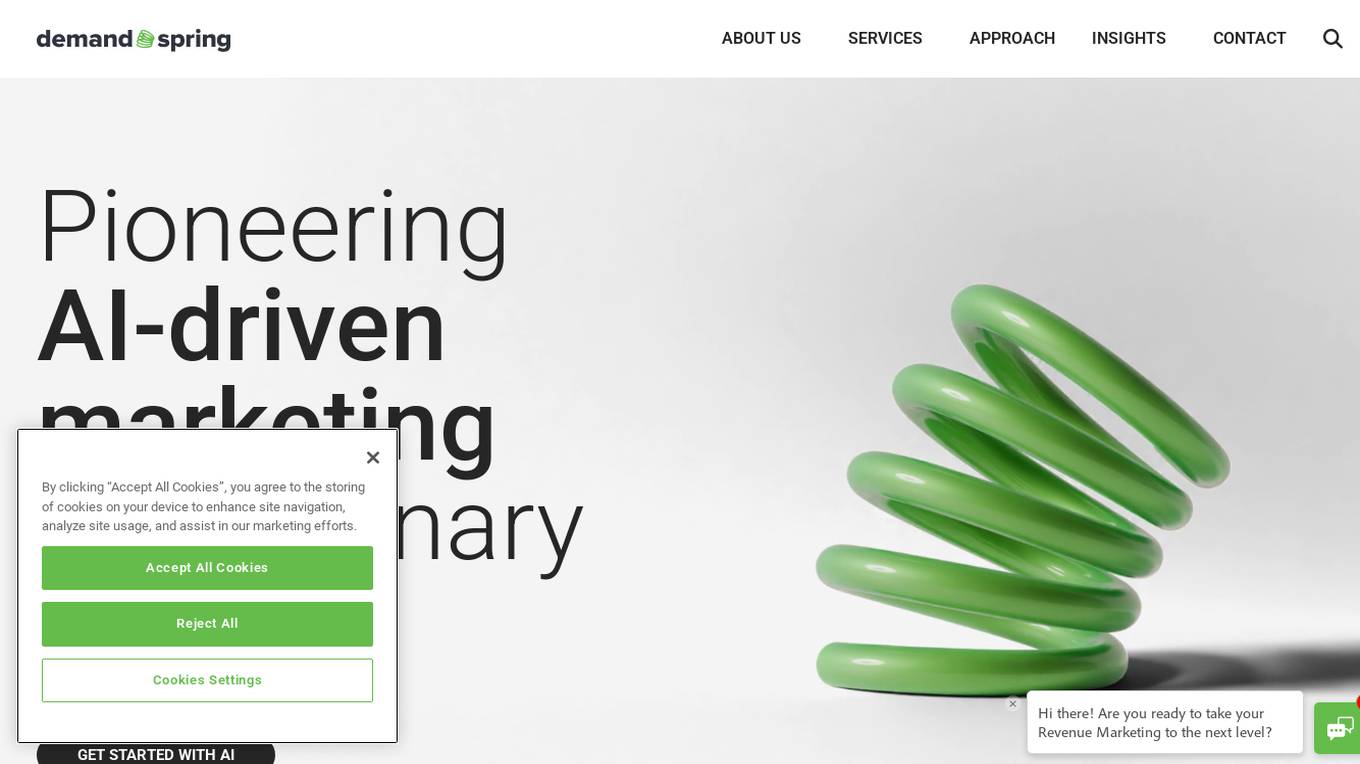
Demand Spring
Demand Spring is a strategic AI implementation platform for B2B marketing leaders. They offer services such as AI advisory for revenue acceleration, AI activation & growth services, training & enablement for AI-first mindset teams, and marketing automation & AI workflow agents. The platform helps B2B marketing leaders leverage AI and marketing automation platforms to transform operations, increase productivity, and create personalized customer engagement. Demand Spring aims to make AI and automation accessible, actionable, and impactful for their clients.
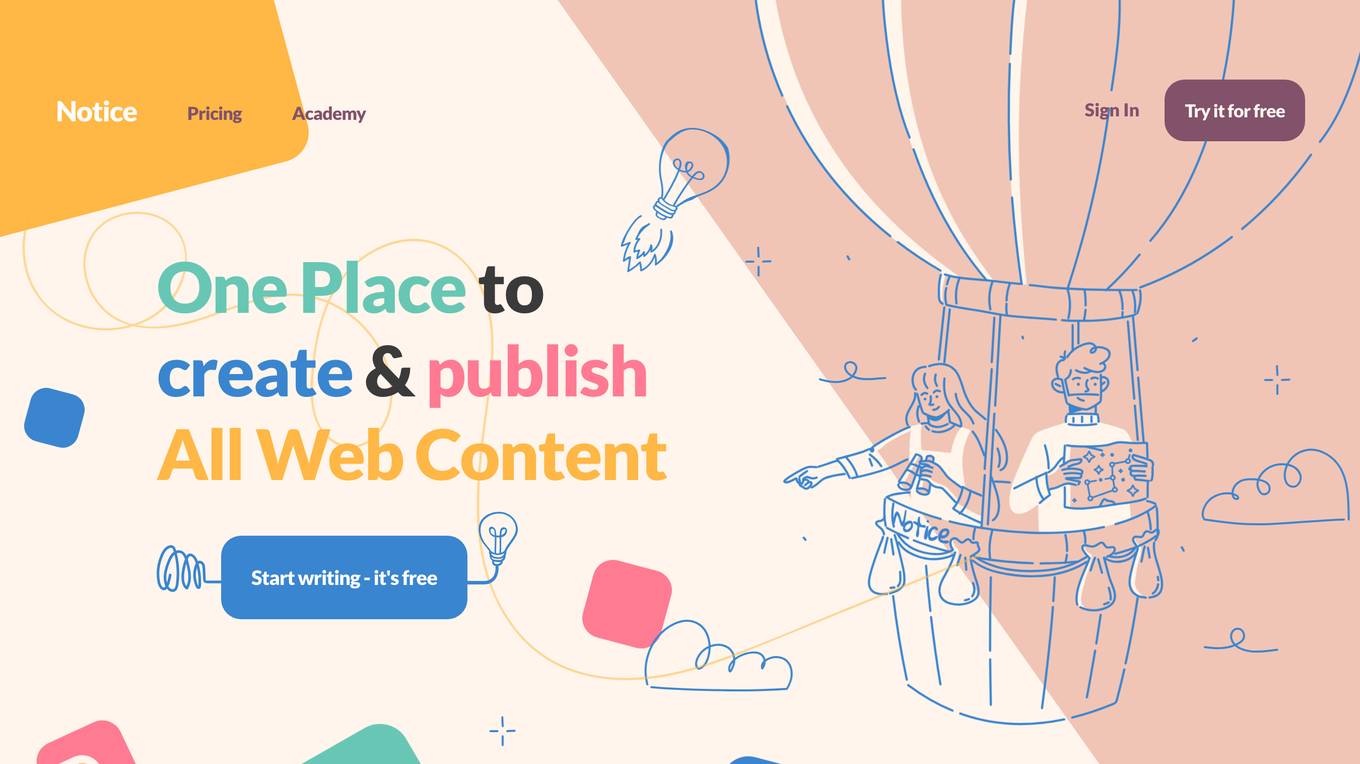
Notice
Notice is an AI-powered platform that allows users to create blogs, documents, portfolios, and more with ease. It offers collaborative editing, auto-translation in over 100 languages, and an AI writing assistant. Users can embed their content anywhere on the web using ready-to-use templates that are SEO-friendly. Notice simplifies content creation and publishing, making it accessible to users of all skill levels.
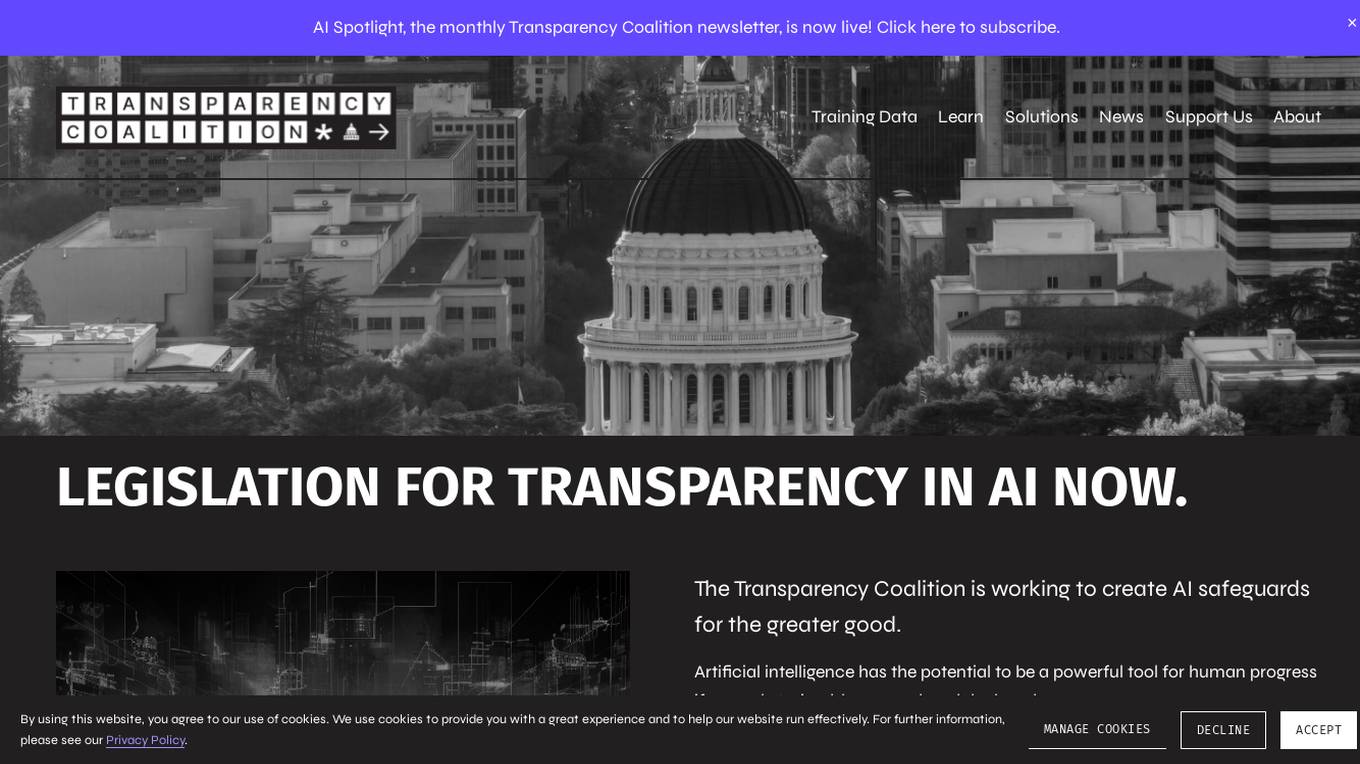
Transparency Coalition
The Transparency Coalition is a platform dedicated to advocating for legislation and transparency in the field of artificial intelligence. It aims to create AI safeguards for the greater good by focusing on training data, accountability, and ethical practices in AI development and deployment. The platform emphasizes the importance of regulating training data to prevent misuse and harm caused by AI systems. Through advocacy and education, the Transparency Coalition seeks to promote responsible AI innovation and protect personal privacy.
1 - Open Source AI Tools
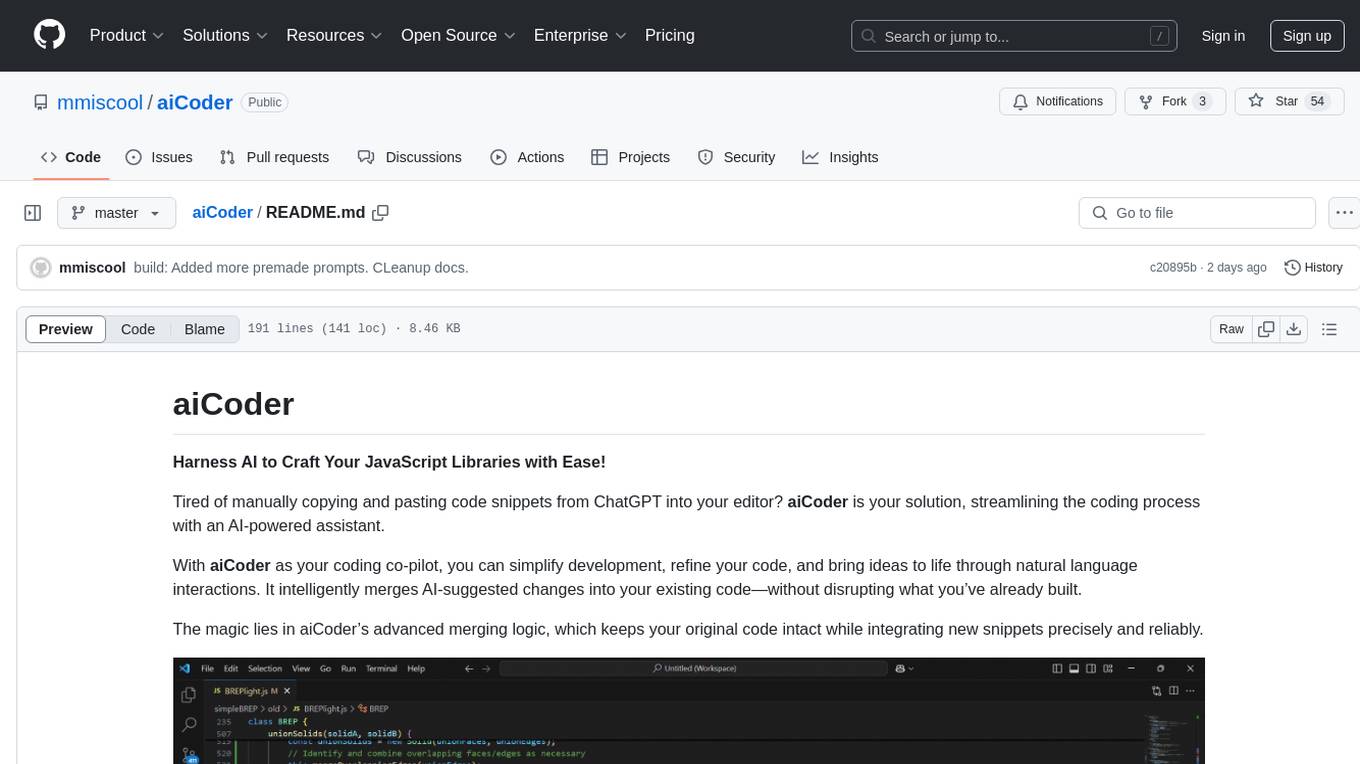
aiCoder
aiCoder is an AI-powered tool designed to streamline the coding process by automating repetitive tasks, providing intelligent code suggestions, and facilitating the integration of new features into existing codebases. It offers a chat interface for natural language interactions, methods and stubs lists for code modification, and settings customization for project-specific prompts. Users can leverage aiCoder to enhance code quality, focus on higher-level design, and save time during development.
20 - OpenAI Gpts

Financial Cybersecurity Analyst - Lockley Cash v1
stunspot's advisor for all things Financial Cybersec
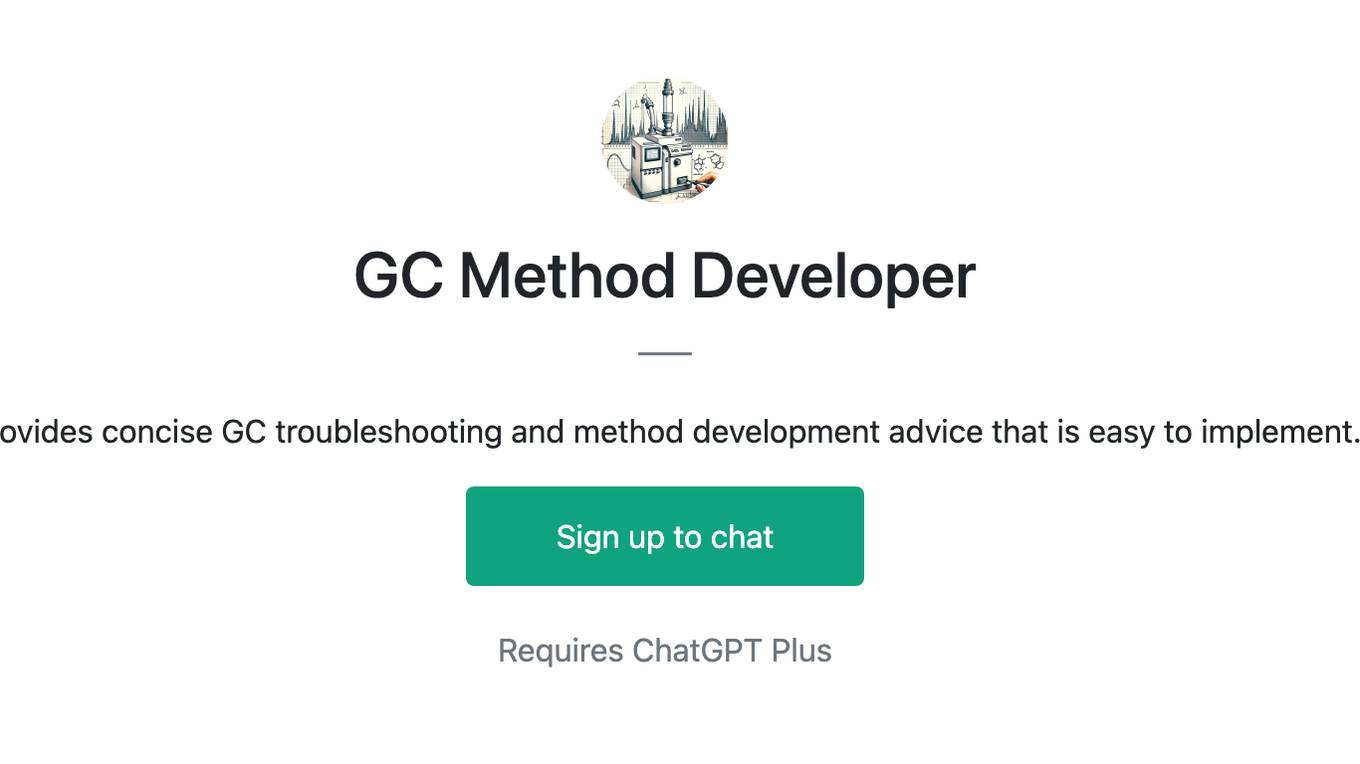
GC Method Developer
Provides concise GC troubleshooting and method development advice that is easy to implement.
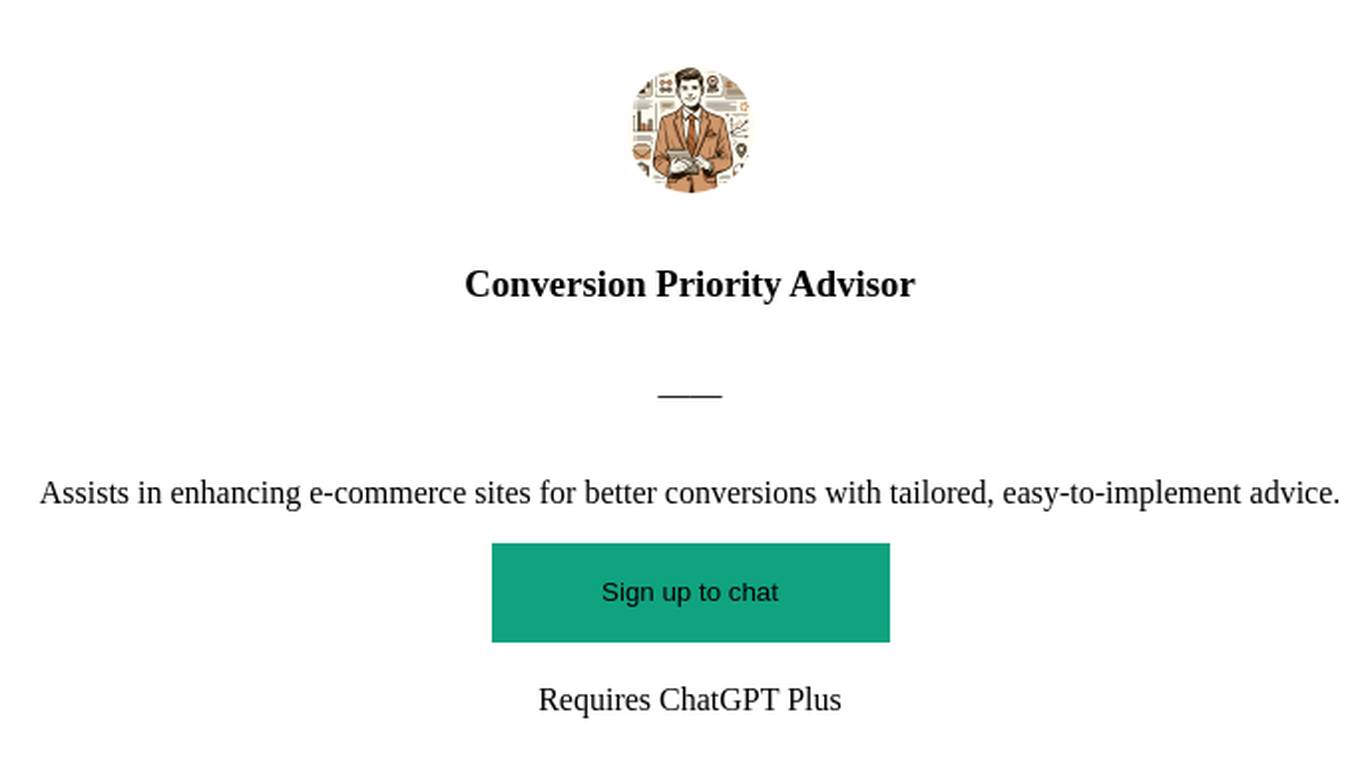
Conversion Priority Advisor
Assists in enhancing e-commerce sites for better conversions with tailored, easy-to-implement advice.

👑 Data Privacy for Insurance Companies 👑
Insurance providers collect and process personal health, financial, and property information, making it crucial to implement comprehensive data protection strategies.
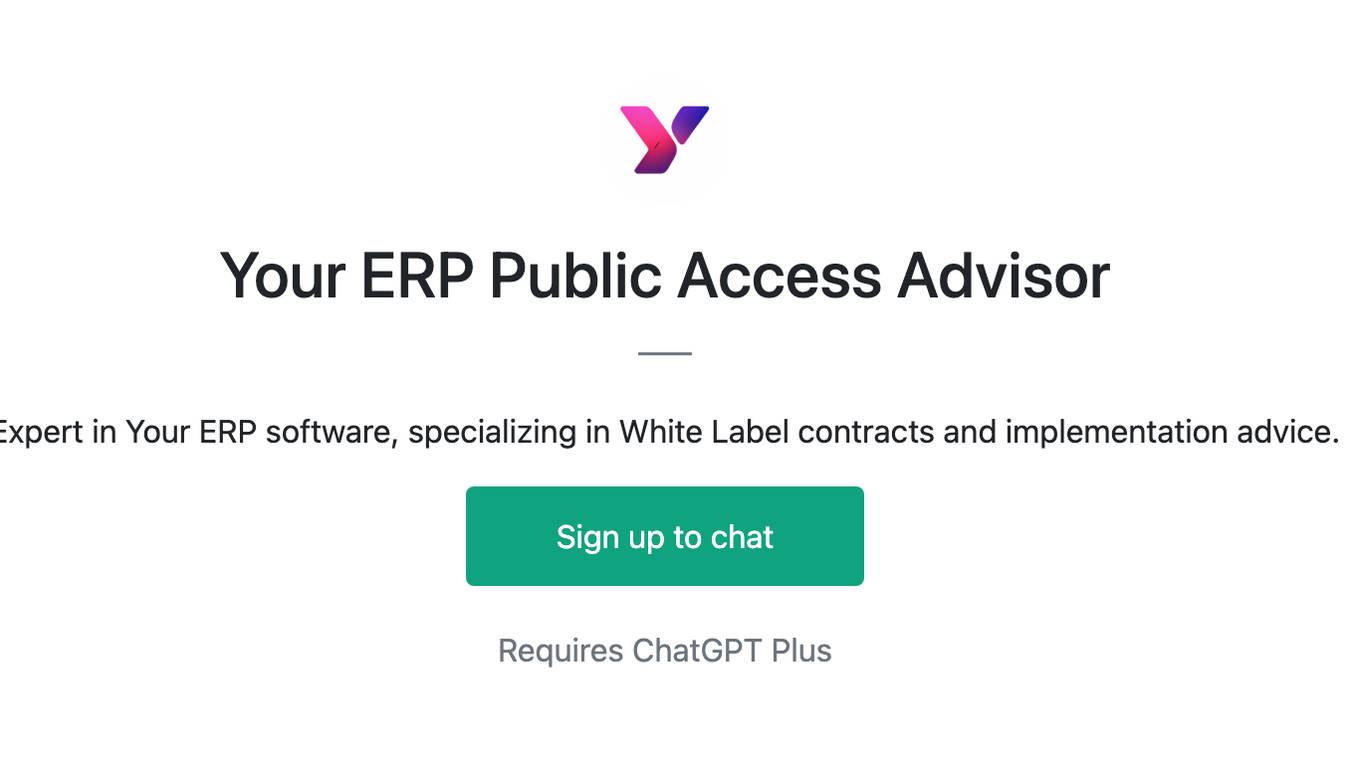
Your ERP Public Access Advisor
Expert in Your ERP software, specializing in White Label contracts and implementation advice.
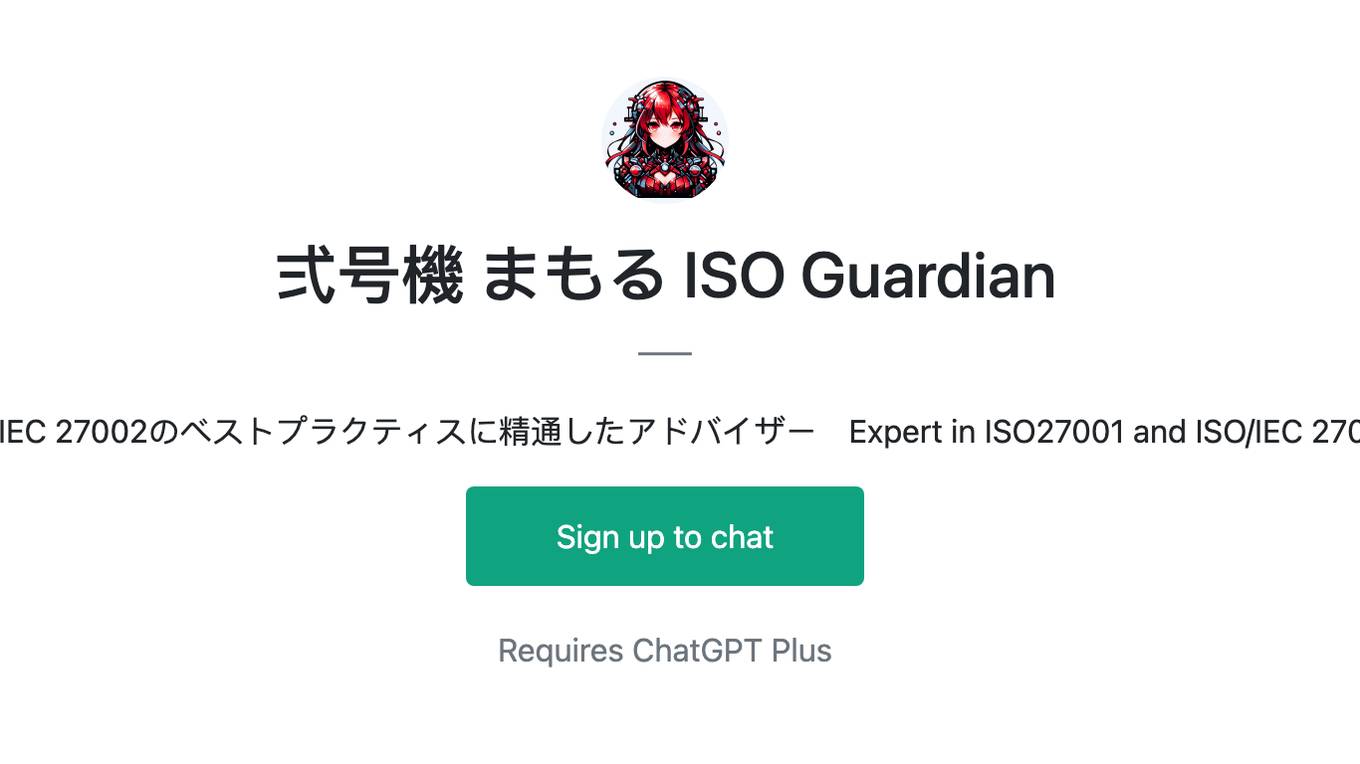
弍号機 まもる ISO Guardian
ISO27001およびISO/IEC 27002のベストプラクティスに精通したアドバイザー Expert in ISO27001 and ISO/IEC 27002 best practices.
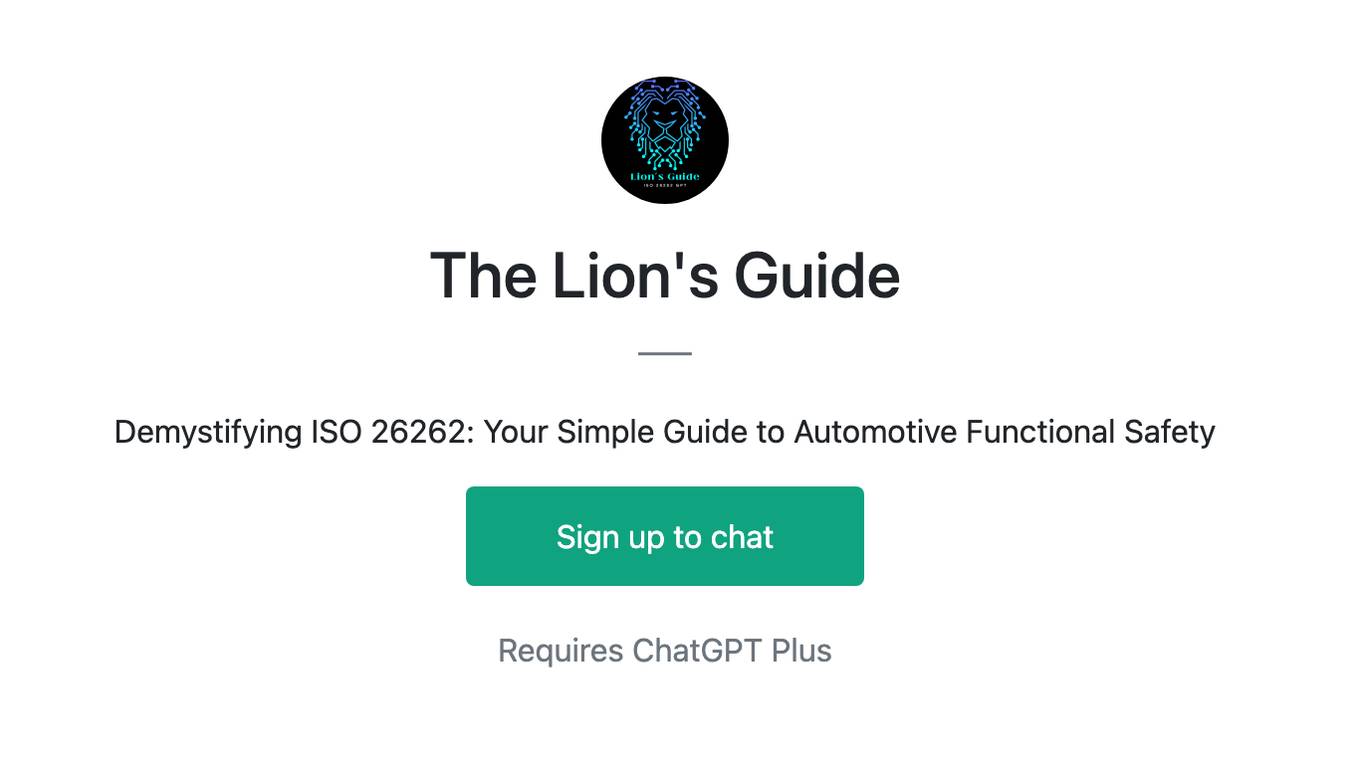
The Lion's Guide
Demystifying ISO 26262: Your Simple Guide to Automotive Functional Safety
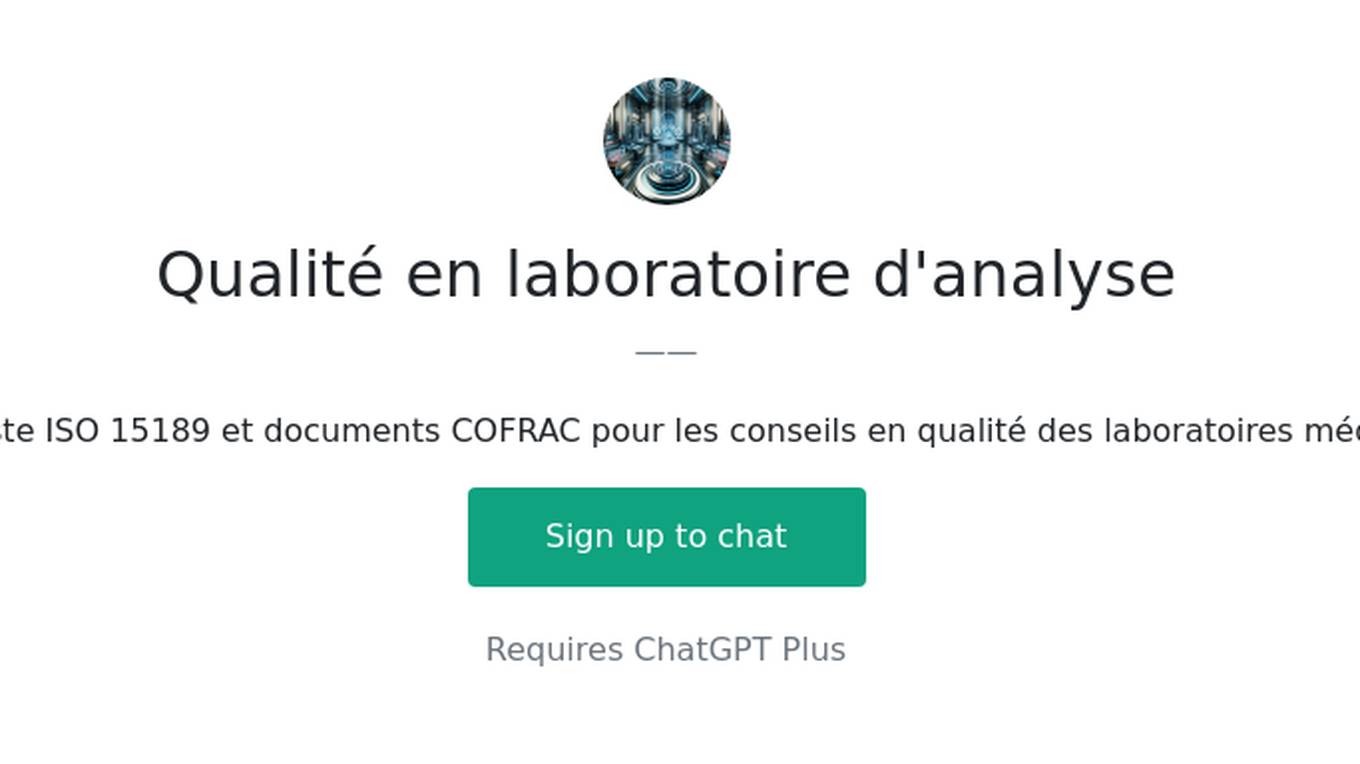
Qualité en laboratoire d'analyse
Spécialiste ISO 15189 et documents COFRAC pour les conseils en qualité des laboratoires médicaux.
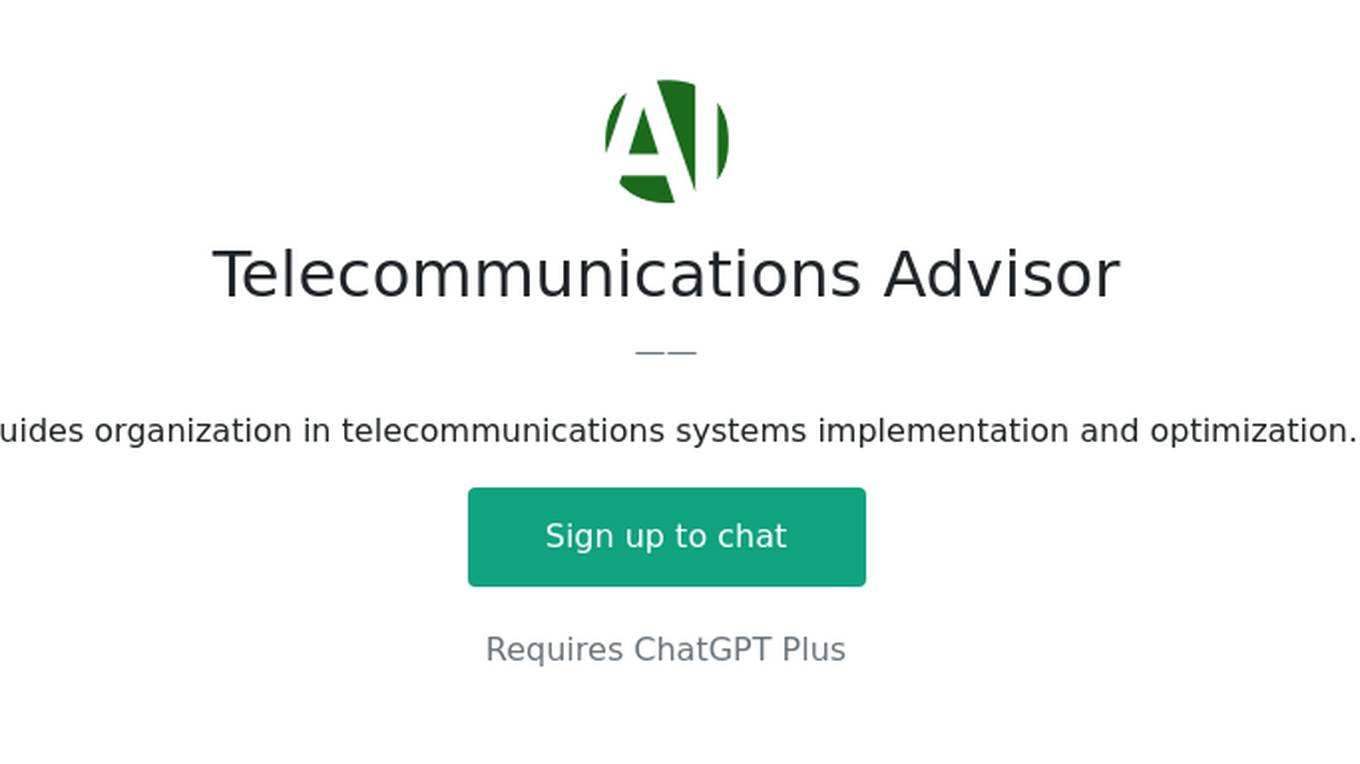
Telecommunications Advisor
Guides organization in telecommunications systems implementation and optimization.
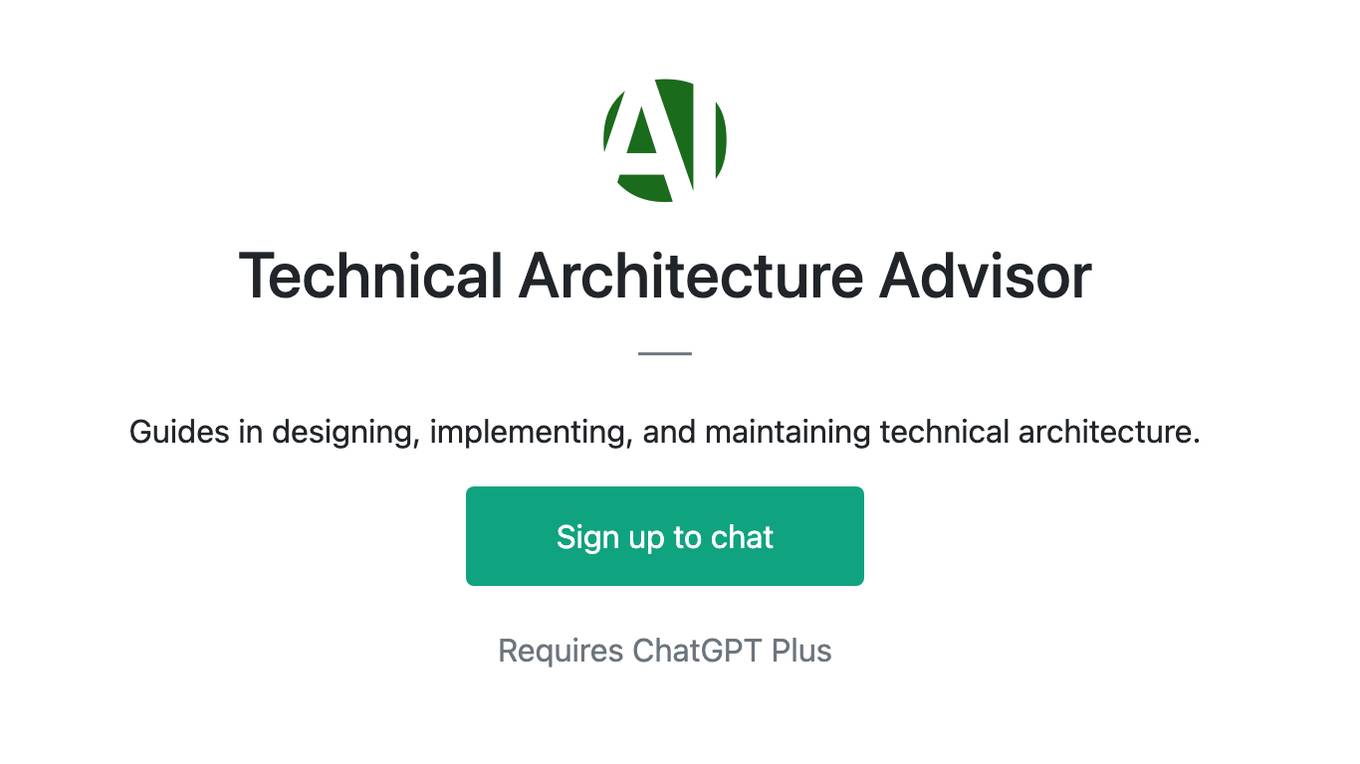
Technical Architecture Advisor
Guides in designing, implementing, and maintaining technical architecture.
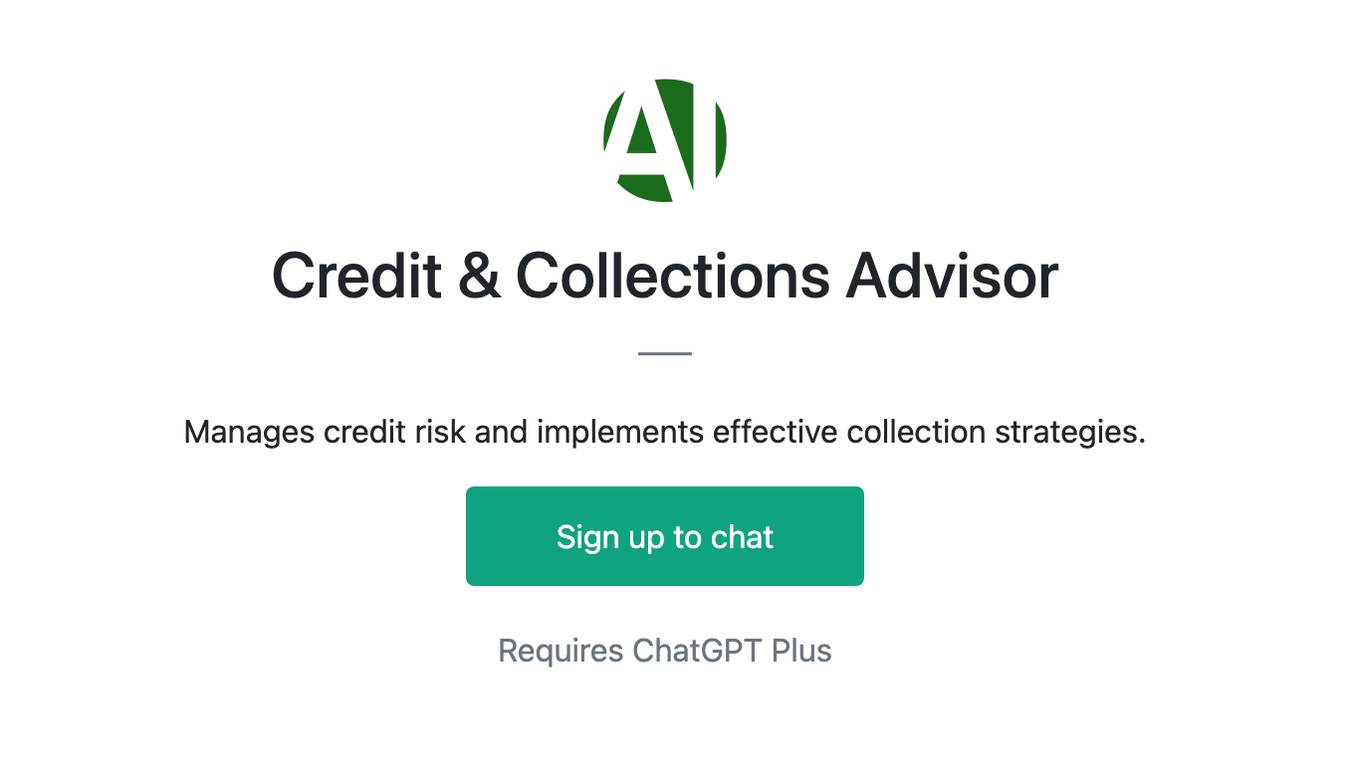
Credit & Collections Advisor
Manages credit risk and implements effective collection strategies.

Center of Excellence Copilot
Offering advice and guidance for those managing a Salesforce Center of Excellence
Industrial Innovator
Expert in manufacturing operations and digital transformation guidance
